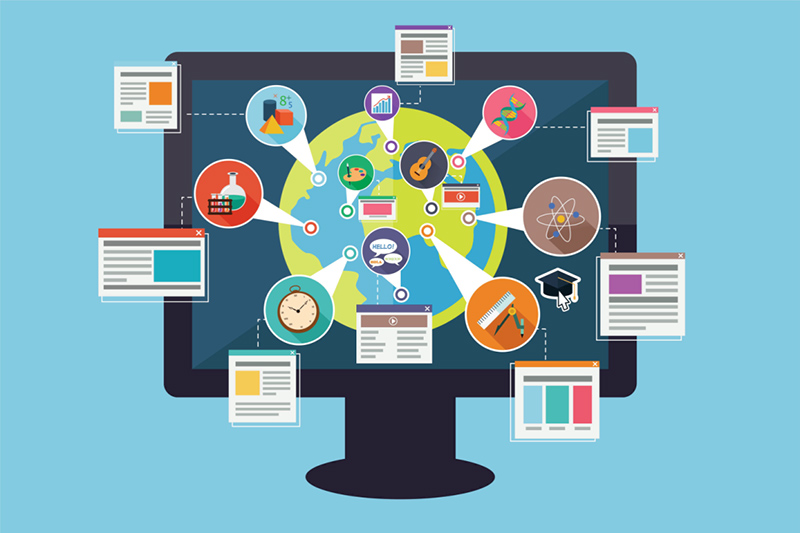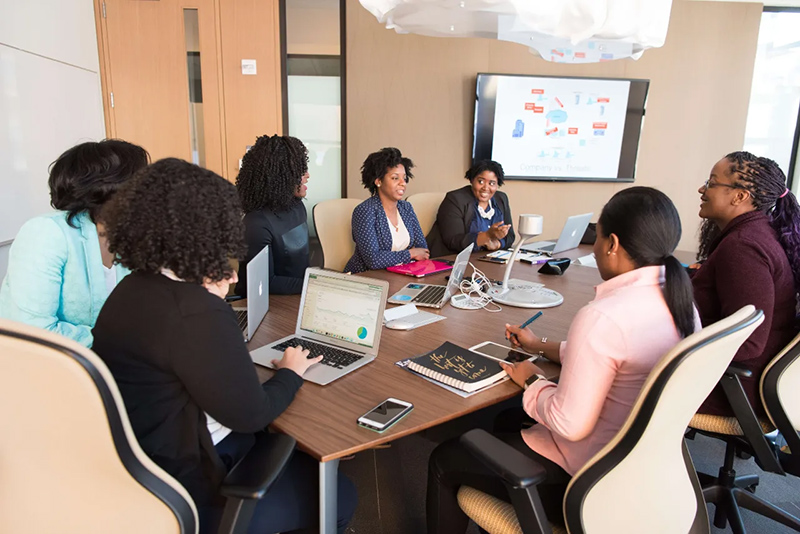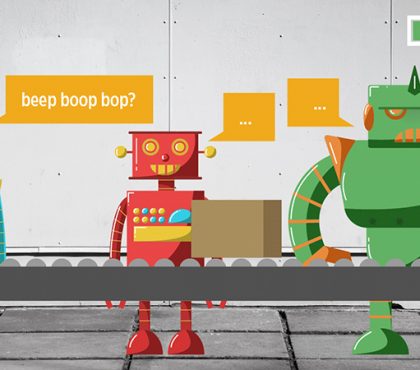To create engaging learning experiences that resonate with varied audiences, eLearning localisation services are indispensable for organizations. In this article, we will introduce you to the top 10 companies specializing in eLearning localisation. Let’s explore how these experts can be the ideal partners for your localisation journey!
3 Reason-why eLearning Localisation Should Be Centralized
Centralizing eLearning localisation ensures consistency and quality while addressing specific cultural and linguistic needs. Here are 3 key reasons why this approach is crucial for success in global eLearning.
1. Personalized and Relevant Training is a Workforce Expectation
In today’s global workforce, 91% of employees prefer training that is personalized and relevant to their specific needs. This highlights the importance of localization in creating customized learning experiences that engage learners across different regions.
By centralizing eLearning localisation, organizations can consistently deliver training that meets these expectations, ensuring that the content speaks directly to the learners’ individual contexts.
2. Language Barriers Lead to Training Failures
A staggering 50% of global training initiatives fail because they don’t adapt content to the learners’ native languages. This demonstrates how language barriers can significantly hinder learning outcomes. Centralizing localisation processes ensures that all training materials are properly adapted, helping companies avoid these failures and enhance the effectiveness of their global eLearning programs.
3. First-Language Training Enhances Retention
Studies show that learners are three times more likely to retain information when training is conducted in their first language. This is because training in one’s native language allows for a deeper understanding and stronger connection with the content. By centralizing eLearning localisation, organizations can improve knowledge retention and overall performance across their workforce.

TOP 10 Perfect Partners for Your eLearning Localization Services
With the right localization strategy, you can effectively scale your training efforts across global markets, ensuring that every learner receives content tailored to their language and cultural context.
Below is a comprehensive list of the top 10 companies to help you achieve successful eLearning localization.
| No. | Company | Service | Standout |
| 1 | F.Learning Studio | Specializes in video translation and comprehensive eLearning localization, offering tailored solutions for language and adapting to each region’s culture, learning styles, visuals, and concepts. | Customizing localization services beyond language, ensuring cultural and contextual relevance. |
| 2 | LanguageWire | AI-powered translation, expert linguists, eLearning content adaptation. | Seamless integration with multiple platforms and fast turnaround with AI assistance. |
| 3 | Ulatus | Specializes in academic and corporate training localization, cultural adaptation services. | Expertise in scientific, academic, and technical content localization. |
| 4 | Laoret | Multilingual eLearning localization, multimedia, and voiceover services. | Full-service localization with a strong focus on multimedia and voiceover capabilities. |
| 5 | Palex Group | Comprehensive translation, localization, and consulting services for eLearning. | Custom workflows tailored for specific industries, especially in eLearning. |
| 6 | Pangea Global | Specializes in gaming, legal, and eLearning localization with ISO certification. | High-quality standards with ISO-certified processes ensure precise localization. |
| 7 | Milestone Localization | End-to-end localization solutions, specialized in translation, transcreation, and subtitles. | Cost-effective localization solutions with a strong focus on cultural adaptation for global markets. |
| 8 | Stepes | Real-time translation technology supports mobile-based localization for eLearning platforms. | On-demand, mobile-ready localization with rapid delivery times using real-time translation. |
| 9 | Lionbridge | Industry-leading localization services, eLearning, and multimedia support in over 350 languages. | The global network of linguists with top-tier expertise in multimedia and eLearning content. |
| 10 | TransPerfect | eLearning localization with multimedia, training videos, and simulation expertise. | Specializes in large-scale global localization projects, with exceptional multimedia services. |
6 Key Elements Need To Be Localized
To ensure the success of your global eLearning programs, it’s crucial to localize more than just the language. Here are 6 key components that should be localized for a truly effective learning experience.
| No. | Key Element | Description | Why It’s Important |
| 1 | Text Translation for eLearning | Adapting written content to the target language while ensuring clarity and cultural relevance. | Essential for conveying information accurately and making the material relatable to learners. |
| 2 | Voice-Over Adaptation | Recording audio in the target language to match the eLearning content, ensuring it fits seamlessly. | Enhances learner engagement by providing an authentic auditory experience that resonates with them. |
| 3 | Culture Localization | Modifying images to reflect local culture, including symbols, colors, and relevant visual context. | Helps create a more relatable and engaging learning environment that respects cultural differences. |
| 4 | Multimedia and Video Adaptation | Altering multimedia elements, such as animations, graphics, and user-generated elearning training videos, to suit the local audience ensures that visual content is appealing and culturally appropriate. | Ensures that visual content is appealing and culturally appropriate, enhancing overall learning. |
| 5 | Subtitle Translation | Translating and timing subtitles to match the spoken content while ensuring readability. | Increases accessibility and understanding for learners who prefer reading along with audio. |
| 6 | Multilingual Dubbing and Voice | Recording voiceovers in multiple languages for videos, providing a seamless listening experience. | Important for reaching a diverse audience and making content more accessible across different languages. |
6 Fundamental Steps in eLearning Localization
Successfully localizing eLearning content involves a structured process to ensure that each element resonates with learners across different regions. Aren’t you curious about the 6 fundamental steps to follow for effective localization on eLearning platforms? Read now!
1. Content Translation
The first step is translating the core content into the target language. This involves converting all text, including instructional materials, user interfaces, and media, into the learners’ native language. It’s crucial to use professional translators familiar with the subject matter to maintain accuracy and relevance.
2. Translation Review
Once the content is translated, a thorough review process is essential to ensure linguistic accuracy and cultural appropriateness. This step involves having native speakers and subject matter experts review the translations to make sure they are contextually accurate and aligned with the learners’ cultural norms.
3. Assembling the Localized eLearning Package
After translation and review, the localized content needs to be integrated into the eLearning platform. This includes placing the translated text, media, and interactive elements into the original course framework while ensuring that the design and functionality remain intact for the new language version.
4. Final Review of the eLearning Package
Before finalizing the localized course, a comprehensive review of the entire eLearning package is necessary. This includes checking that all translations are displayed correctly, multimedia elements are functioning properly, and the overall user experience is seamless on the eLearning platform.
5. Quality Assurance Review
A separate quality assurance (QA) process ensures that everything in the localized course operates smoothly. This involves testing the course across different devices, browsers, and regions to guarantee a consistent experience. QA reviews also catch any technical issues that might have been overlooked in previous steps.
6. Distributing the Localized eLearning Version
Once the localization and QA processes are complete, the final step is distributing the localized version on the eLearning platforms. This step ensures that the newly adapted course is accessible to the target audience, providing them with a learning experience that feels both natural and personalized to their cultural context.
Summary
In today’s globalized world, eLearning localization services are essential for delivering effective and engaging training across different regions. Localization ensures that your learning content is not only translated but also culturally adapted to meet the specific needs of learners. A well-executed localization strategy can significantly improve the success of global eLearning initiatives.

At F.Learning Studio, we specialize in providing comprehensive eLearning localization services to help you create impactful learning experiences. Our custom content development adapts learning objectives and instructional methods to align with local cultures and learning preferences, ensuring relevance and engagement.
We also offer engaging animation videos that can be localized with language, cultural references, and visual styles tailored to your audience. Furthermore, our user-centric design focuses on intuitive interfaces that make eLearning accessible and effective for all learners, regardless of language or cultural background.
Let us help you deliver training that resonates globally!
- Email: [email protected]
- Fanpage: https://www.facebook.com/f.learningstudio
- Website: https://flearningstudio.com/
- LinkedIn: https://www.linkedin.com/company/f-learning-studio/
Get the best values
for your project
See how much your project might cost at F.Learning Studio!

Sean Bui, the founder and creative director of F.Learning Studio, is a respected leader in the e-learning and multimedia production industry. With over 10 years of experience, he has dedicated his career to helping organizations create engaging and impactful learning experiences.
Under his leadership, F.Learning Studio has grown into a trusted partner for organizations in the education, healthcare, and corporate training sectors, producing over 2,000 minutes of educational animation.









